Beverly Wan stands in the middle of the room, but the wrong way up. With slow, precise movements, she lifts her legs into the air. After a brief moment of stillness, she begins to move, contorting her lithe form into shapes almost unfathomable for the human body.
Across the room, Koh Jia Sheng stands on the edge of an air mat, shaking out his limbs as he prepares. Taking a breath, he bounds forward a few steps before launching himself into the air, executing a series of flips before landing firmly on the other side of the room.
For the duo, these seemingly impossible maneuvers are part and parcel of their daily realities, as they spend hours on end honing their craft, their entire lives dedicated to the peculiarity that is circus arts.
Ms Wan’s foray into the circus arts was written in the stars. Born to a dancer and parkour artist, her childhood was a fusion of the athletic and artistic, and circus was a natural fit. She started out as a Chinese dancer, eventually moving on to other genres of dance and enrolled in Singapore’s Nanyang Academy of Fine Arts (NAFA) to pursue a Diploma in Dance in 2017.
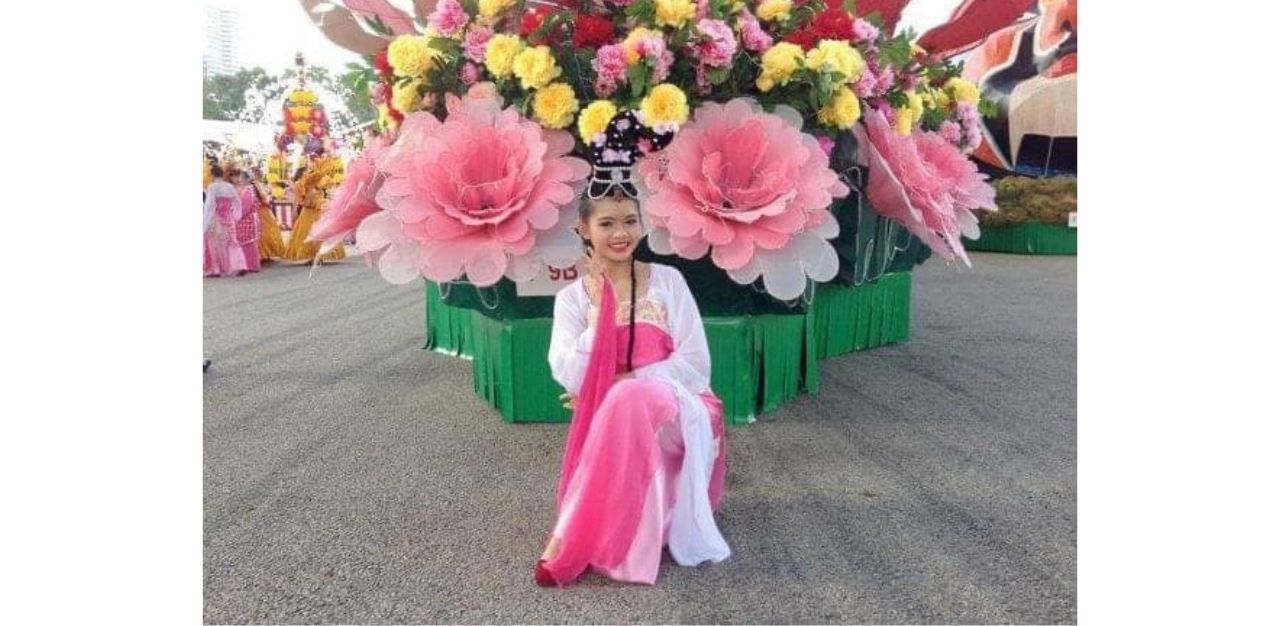
But while she enjoyed dancing, she knew that it was not her end game. Instead, she had her eyes set on becoming a circus artist, a desire born of her exposure to circus artists portrayed in the media, and cemented by her upbringing: “Being able to do both of that [dance and parkour] just became like, ‘Wow, I think I was made to be a circus artist.’ And I felt, given my background, it’s possible, and may even be the road for me.”
Determined to realise her dream, Ms Wan spent her years in NAFA straddling dance and circus, travelling to Sydney during her school breaks to train in various circus disciplines. But in Singapore, where the circus scene is scant, her journey was a lonely one. In her desire to improve, she sought out a partner to train with, and eventually, found one in Mr Koh.
Unlike Ms Wan, Mr Koh had never considered becoming a circus artist. Instead, the former Hwa Chong boy was a gymnast and dancer by training. His roots were humble; growing up in a traditional household where his father did not support his venture into the arts, Mr Koh had to devise his own ways to learn dance, gleaning his moves off YouTube and dancing in classrooms and void decks throughout his Secondary School years.
Dance continued to be a fixture in Mr Koh’s life throughout his schooling years. Upon graduating from university, he decided to take the leap and chase his dreams, delving full-time into commercial dance. It is during this time that he met Ms Wan, who had encountered his profile on Instagram in September 2019, and slid into his DMs (direct messages) with an invitation to train together.
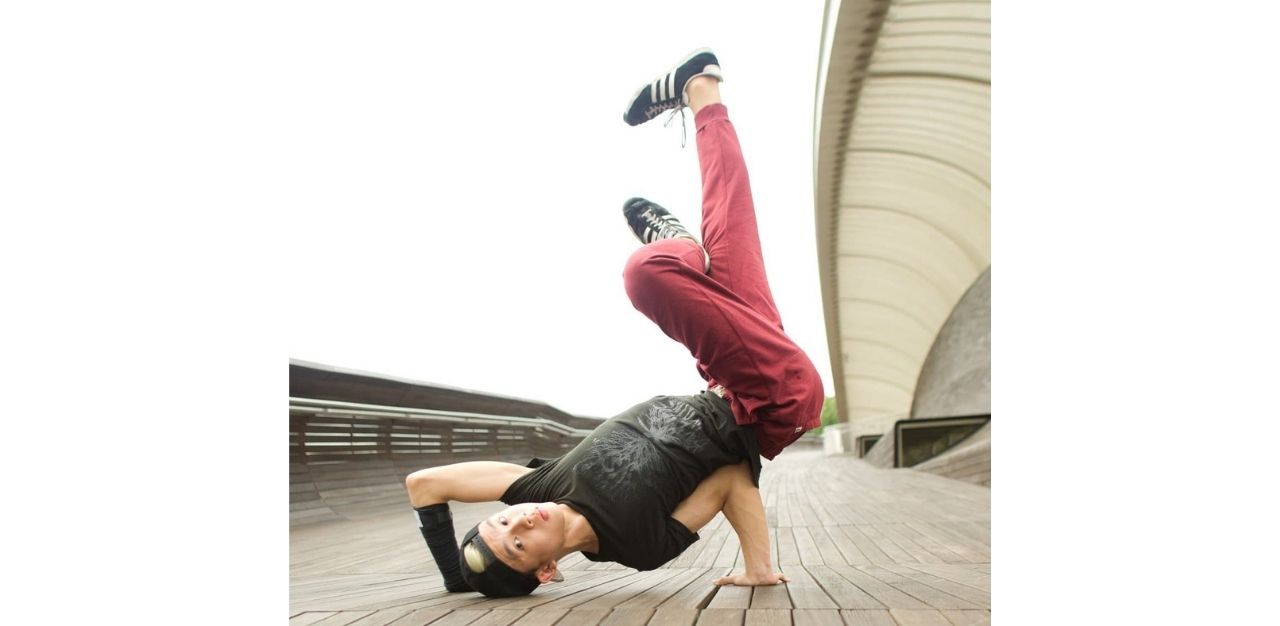
He took her up on the offer, and the rest is history.
Mr Koh shares, “We started off training together four times a week. At first, it was just the two of us. Through training, we got to know each other more, and we got together. Now, we’re trying to start a [circus] together.”
Bonding over their shared love for circus, the two are now on a mission to bring Singapore’s nascent circus scene to new heights, and spread the love of circus to more people. They sought out their own community of aspiring circus performers and in July, at the peak of the pandemic, established Singapore’s very first circus troupe – the Circus of Altrades.
Inspired by the phrase ‘Jack of all trades’, the Circus of Altrades was established on the principle of versatility, with Mr Koh and Ms Wan leading the troupe as the Jack and Jacquella of ‘all trades’ (stylised to become ‘Altrades’, pronounced elle-tray-dis) respectively.
A year since they started training, the troupe is now readying themselves for their first show, come Halloween. Amidst their tireless preparations, TheHomeGround Asia sat down with Mr Koh and Ms Wan, learning about how their past contributes to their craft today, what it is like to be trailblazers in the local circus scene, and the road they seek to forge for themselves moving forward.
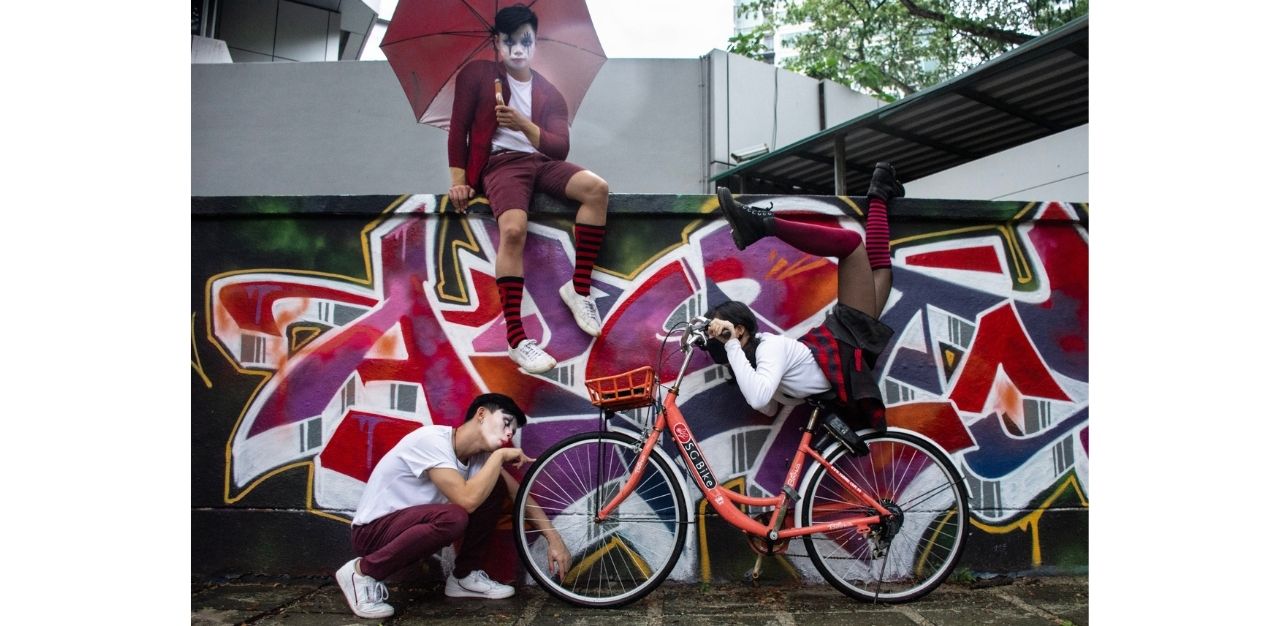
(NOTE: This interview has been edited for length and clarity.)
Beverly Wan: The period when I was in NAFA is probably where I learned the most about myself. I learned what it feels like to be disciplined, to be in love with, and obsessed with something. And it definitely taught me the mental resilience that I need to be an artist and a performer. NAFA also gave me the body awareness training that I need to be a circus artist, so I had a bit of a headstart when I started doing circus.
The way I approach circus arts, I feel is the same way I approached dance. I’m obsessed over my circus training and there’s this perfection thing going on. If I don’t get it [a stunt], I can’t go to sleep.
Today, I specialise in contortion, hand balancing, partner acro, group acro, and aerial arts.
Koh Jia Sheng: Being able to dance taught me how to perform and how to storytell, which I think is very important. So when I moved to circus, it’s about how I package the stunts. When I learned circus arts, I learned individual skills. And then using whatever I learned in dance and in theatre, I try to link them up to create a coherent storyline.
TheHomeGround Asia: What is it about the circus arts that keeps you coming back for more?
BW: I have always been a mover, I’ve never been able to sit still. The thrill of rolling around, flipping around, and the world just like going ‘Wooo!’ all over the place. That’s the life that I enjoy. And I think that’s absolutely what circus can give me.
You’d be surprised – even though it is so-called a very silly career, the amount of discipline it requires to be a circus artist is ridiculous. Like, why would anyone want to stand on your hands and stare at the floor for two minutes? There’s no reason you should be doing that. And there’s no reason you should be able to do that unless you have a lot of discipline. I really love [the feeling of working] so hard on something, and then you finally achieve something. The first time I managed to hold a handstand for 10 seconds after doing handstands 1,000 times before; that feeling is impossible to replicate.
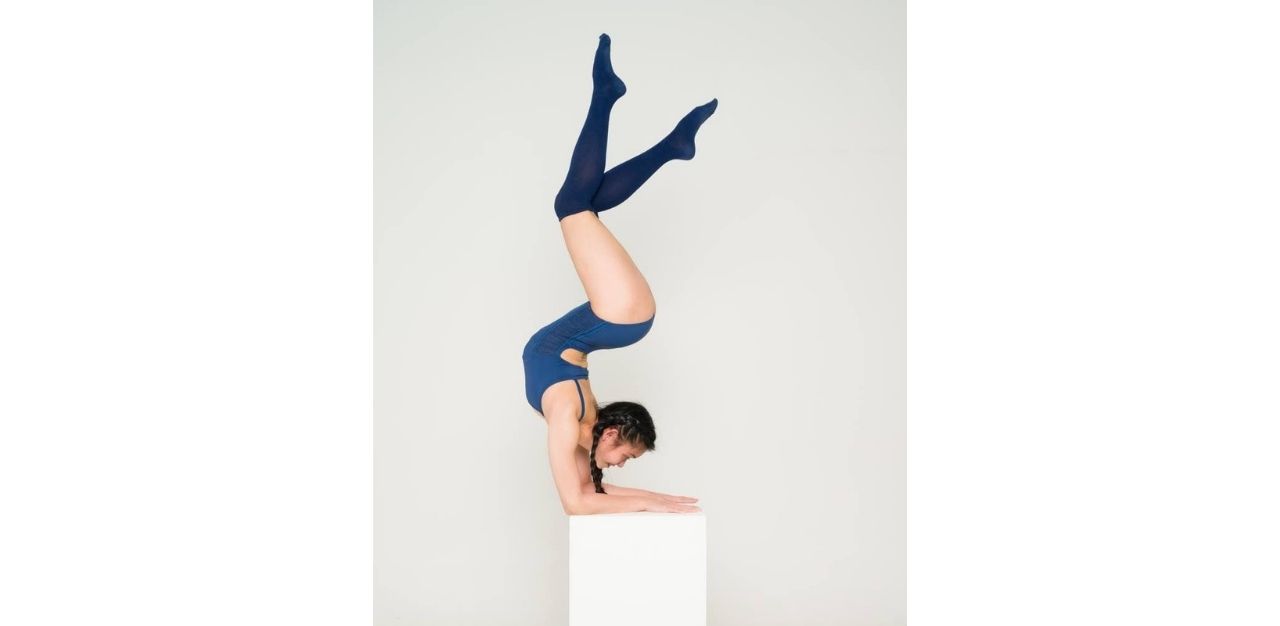
JS: The danger element is the main thing that attracts me, doing what others can’t do, and just freaking blow people’s minds away. At first I kind of rejected that side of me, because when I was doing dance, people knew me as the stunt man. But I felt it wasn’t true to the craft, but after, I realised that it makes me special, unique and different from the rest. So currently, I’m embracing it and like circus arts really bring out that side of me. Yeah, I will say that I really enjoy myself.
THG: What are some misconceptions that people may have about the circus arts?
JS: Everyone sees the circus as something that is super dangerous, which it [can be]. But we do have a lot of progressions and procedures that we follow as well. So in terms of training safely and progressing towards a certain direction, I think that is pretty safe. We take a lot of suggestions and advice from people here and overseas as well, on how to have longevity in your career. The stunts themselves are dangerous, but we do have procedures getting there.
BW: I think one of the misconceptions is that it is not a sustainable career. I’m a full time circus artist, I coach and I perform. And I feel very comfortable with my job. I feel financially comfortable, and I don’t feel that instability that people worry about. If I work hard, I get the money. And if I don’t, then I don’t get the money, and I think it’s the same in any job, like if you don’t work hard, you get fired.
JS: It’s not a passion career. A lot of people tell us, ‘Eh if you do circus, or any competitive sports, there’s going to be a time where you have to retire. Then what’s going to be left for you?’ So for us as an organisation, we do hope to empower our artists with other skills, like being able to team manage, running arts management stuff, and coaching. So we do feel like it is still a very viable career option that has longevity.
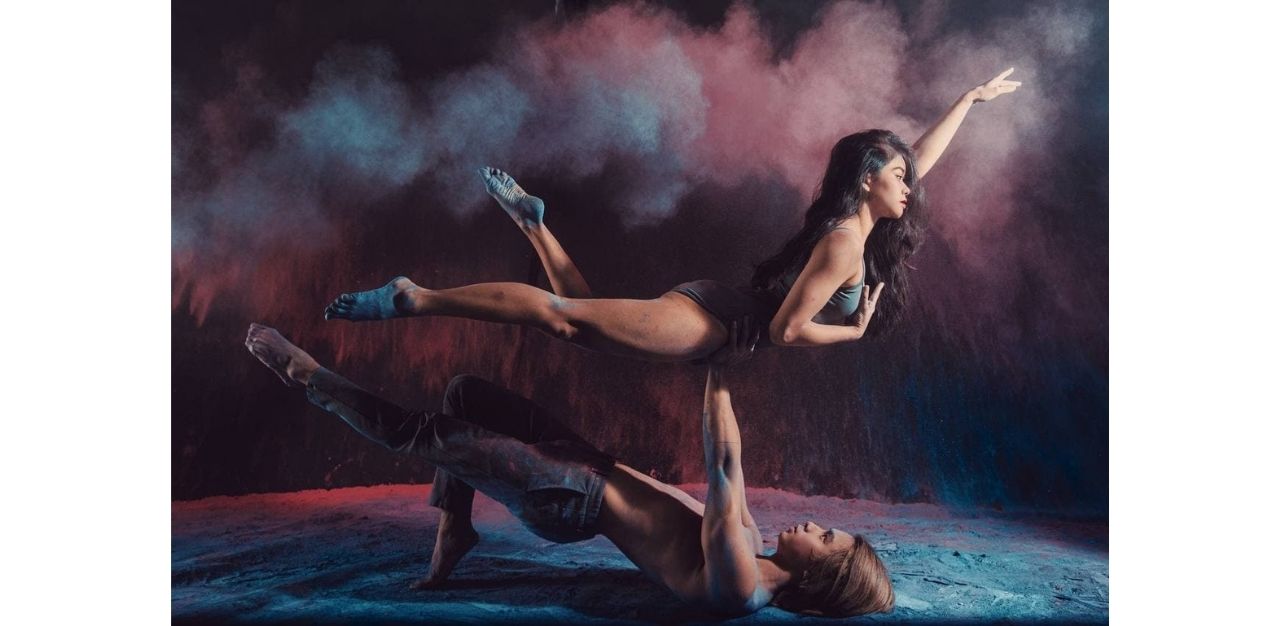
THG: Tell me about the process of setting up the circus, and your journey thus far.
JS: We started off with a social cause, and missions that we wanted to fulfill. Personally, I always felt that financial stability is the most important thing. So when we started this, we came up with a mission where we can help to grow the community by providing opportunities to people.
Instead of a bottom-up approach, we come from the top-down, which means we create shows, and it provides jobs. We want to start a full scale training school.
BW: We knew of people who were incredibly talented, but didn’t perform. There were pieces here and there that we knew, if we pull these people together, we can make it [the circus] happen. So we started by approaching all these people and asking if they were interested in being a part of our circus. After we got a decently sized team, then we realised, okay, it’s time to make it happen.
THG: What were some challenges you faced in establishing the Circus of Altrades?
JS: The arts are looked down upon because of its [perceived unsustainability], especially during pandemic times. Circus arts are also very new in Singapore.
We are trying to tackle the mindset that the arts and circus are unsustainable, which means providing [artists] job opportunities and a sustainable future, where they can have job progression and stuff like that. And that’s the reason why we decided to go for a for-profit structure, which means we can expand, we can create teams to roam around the region to perform.
Honestly speaking, a lot of Singaporeans do see art as a charity, because they’re not willing to pay. We want to shift away from that, and have more angel investors, people who really believe that art is something beautiful, it’s something to be cherished and there’s value to it. So currently, we’re trying to go against the current.
To us, it’s a lot about changing mindsets and letting them believe that this is something worth investing your time in. I think that’s our main difficulty, but we are always very hopeful.
THG: The Circus of Altrades is Singapore’s very first circus troupe. Why did you decide to start a circus here, instead of pursuing your circus dreams elsewhere at an already established circus?
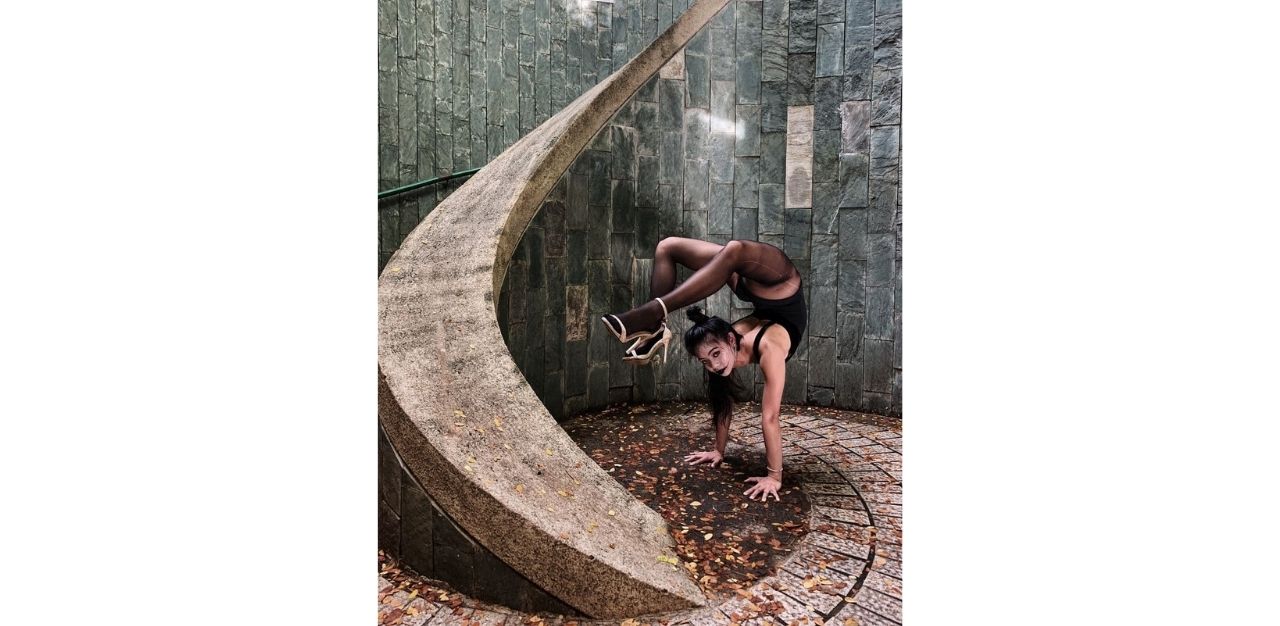
BW: When I tell my friends that I want to be a circus artist, they will tell me, ‘Don’t stay in Singapore, it’s not possible to do it in Singapore. You should go overseas, to Hungary, or America, or Europe. You’ll find a lot more over there.’ And because I love my country, every time I hear that, I feel a bit heart pain, that you don’t believe in your own country.
But at the same time, it’s true. It would be a lot easier to just go overseas and do it. But I feel like if we keep exporting our artists, then the arts scene will never grow in Singapore
So I want to stay, and grow the art scene here. And I believe that with what we’re doing, our entire circus plans and how we’re progressing so far, we definitely are capable of proving that the arts have potential in Singapore, and can thrive here. You don’t have to leave the country to chase a dream. Yes, you can leave to be inspired, to learn a little bit and bring it back to the country, but I want to be one of those that helped to grow the arts scene and I think we are capable of it.
Also, I get very homesick when I leave Singapore. The people overseas are just nothing like the people in Singapore and I can never feel at home as I do here.
THG: What kind of shows do you want to put up?
BW: Artistically, a lot of the concepts that we are trying to develop are random things that kind of came to our minds. So we are trying to be a blank canvas in this area in that sense, we do whatever we want.
So we don’t have one specific style. Or rather, if there is any idea that, as creative director, I’ve had, and I’ve had a lot of ideas, we’re just gonna do it first. Until maybe I run out, then we can find one specific lane.
JS: We didn’t want to have any creative blockage. Circus, as an art form, has a lot of possibilities, so we are trying to keep it as open as possible, and going for everything that we believe is beautiful.
THG: What kind of environment or training atmosphere do you hope to create here at Circus of Altrades?
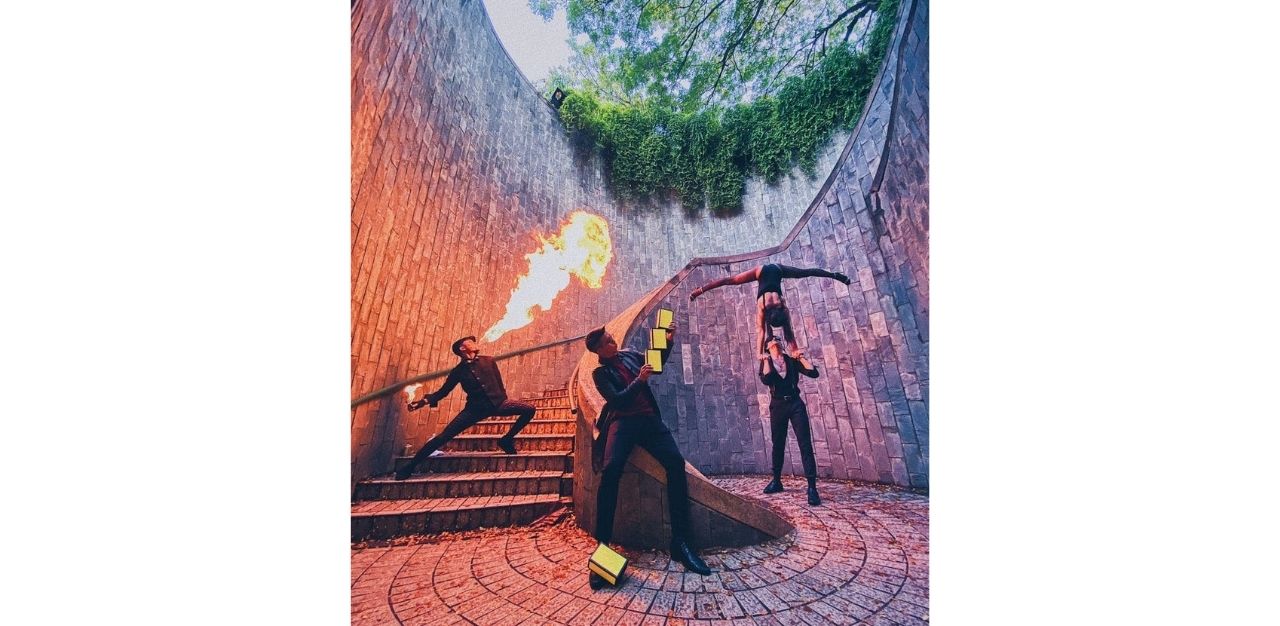
BW: Two words: Serious, fun. Serious in the sense that you’re obsessed with and serious about your training. It’s not just a hobby. We want people who are like, I need to learn how to stand on my finger, kind of thing.
JS: That said, we want to build a family culture here. Creating art is part of it, but who we are creating it with is very important. So whenever we try to ask people to join us, we do have try-outs with them to get a vibe of who they are as people and their character. Because we do want to create a safe space for everyone. And because there’s a lot of trust going on, you cannot have somebody who’s flakey, who doesn’t care about the safety and stuff like that.
THG: Where do you hope to bring the Circus of Altrades? What do you hope to achieve?
BW: A running show. We want our circus to grow so much and be so impressive that, for example, if someone wanted to see a circus, instead of ‘You should go to Vegas’, they will say, ‘You should see the Singapore circus show, you should see the Circus of Altrades.’
JS: Ya, and we do hope to have a circus school that can consistently churn out [circus artists] as well, and just spread the love for circus. So that this lives on, even after we die.
THG: What does it mean to call yourself a circus artist?
BW: I feel like a very light hearted person because I’m a circus artist. Like I said just now, it’s serious and fun. And I think being a circus artist is like that one possibility that allows you to put both together. I am very serious about my training. I get upset when I don’t get things right and I like to obsess over it and I demand and I drill and I go nuts over it. I kind of lose my hair over it, but at the same time, it’s so fun. Being a circus artist, especially in Singapore, is quite ridiculous. But it’s the kind of ridiculous that I’m proud of.
JS: For now, I do feel I’m an acrobat. I’m still working towards being a circus artist, just because I don’t have experience on stage doing circus acts yet. Earning those labels is very important to me. I do feel like there’s a lot of history behind it. I think it’s an honour to be called a circus artist, and then being able to do what all the other artists can do, and stuff like that. I do wish that one day I can be like a world renowned circus artist.
THG: Circus of Altrades is preparing for their very first show, come Halloween. Give us a glimpse of what we can expect.
JS: It’s gonna be impressive. We’re trying to make it an immersive show. Imagine, you’re just sitting on a beanbag and watching the show. And randomly, there’s a projected stuff at the back of the pillar, and someone just walks in from there.
It’s our first show, and we do have a great cast.
BW: Ya, An incredible cast. It’ll be a freaky Halloween act, with broken contortionists, evil clowns, and stuff like that. It’s gonna be a sick show!
JS: Yes, please come!
Join the conversations on TheHomeGround Asia’s Facebook and Instagram, and get the latest updates via Telegram.














